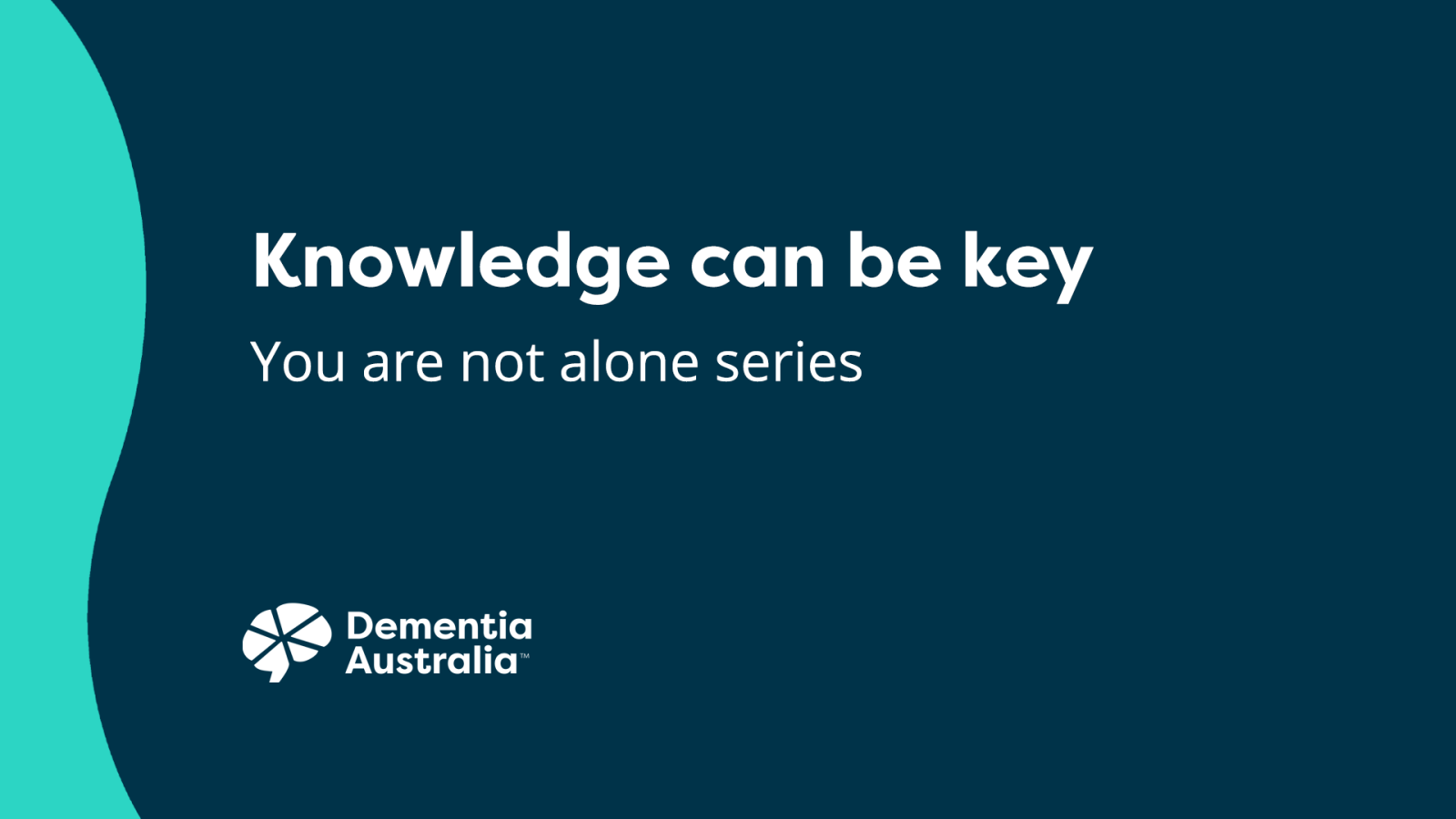Signs and symptoms for younger onset dementia
Worried about your memory? Or has your loved one not been themselves lately?
Everyone feels forgetful or a bit off from time to time. But if your ability to remember or do routine things is disrupting daily life, it could be a sign of younger onset dementia.
When you think of dementia, you probably picture someone well into their golden years. But dementia can affect people younger people too – in their fifties, forties and even thirties.
You’re not alone. Tens of thousands of Australians live with younger onset dementia. Dementia Australia's support, resources and programs can help you and your families live better during this time.
It’s normal to feel denial or fear of diagnosis. But getting a correct diagnosis can be life-changing. The sooner you can get an answer, the sooner you can get on with living your life to the fullest.
To see how an early diagnosis could help you, watch the following video or read the video transcript.
What signs and symptoms you should look out for?
- Memory loss that impacts your daily life
- Challenges with planning or solving problems
- Difficulty completing familiar tasks at home, at work or at leisure
- Confusion with time or place
- Trouble understanding visual images and spatial relationships
- Problems with words in speaking or writing
- Misplacing things and losing the ability to retrace your steps
- Decreased or poor judgement
- Withdrawal from work or social activities
- Changes in your mood and personality.
If you notice any of these signs or symptoms, don’t ignore them. Schedule an appointment with your doctor. It may not be dementia, and a proper assessment will give you answers.
You can also contact the National Dementia Helpline on 1800 100 500. You can also send the National Dementia Helpline an email or chat online (via webchat).

